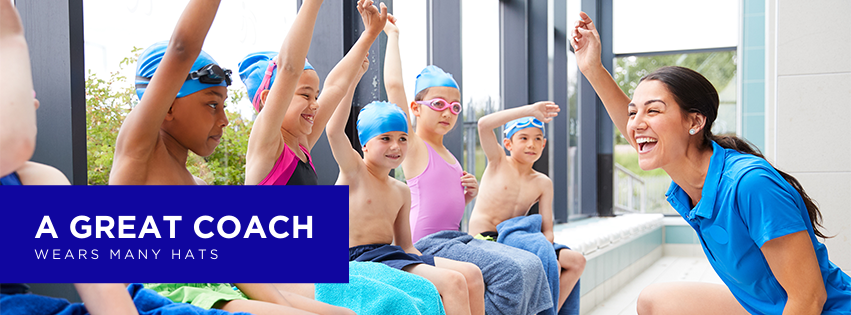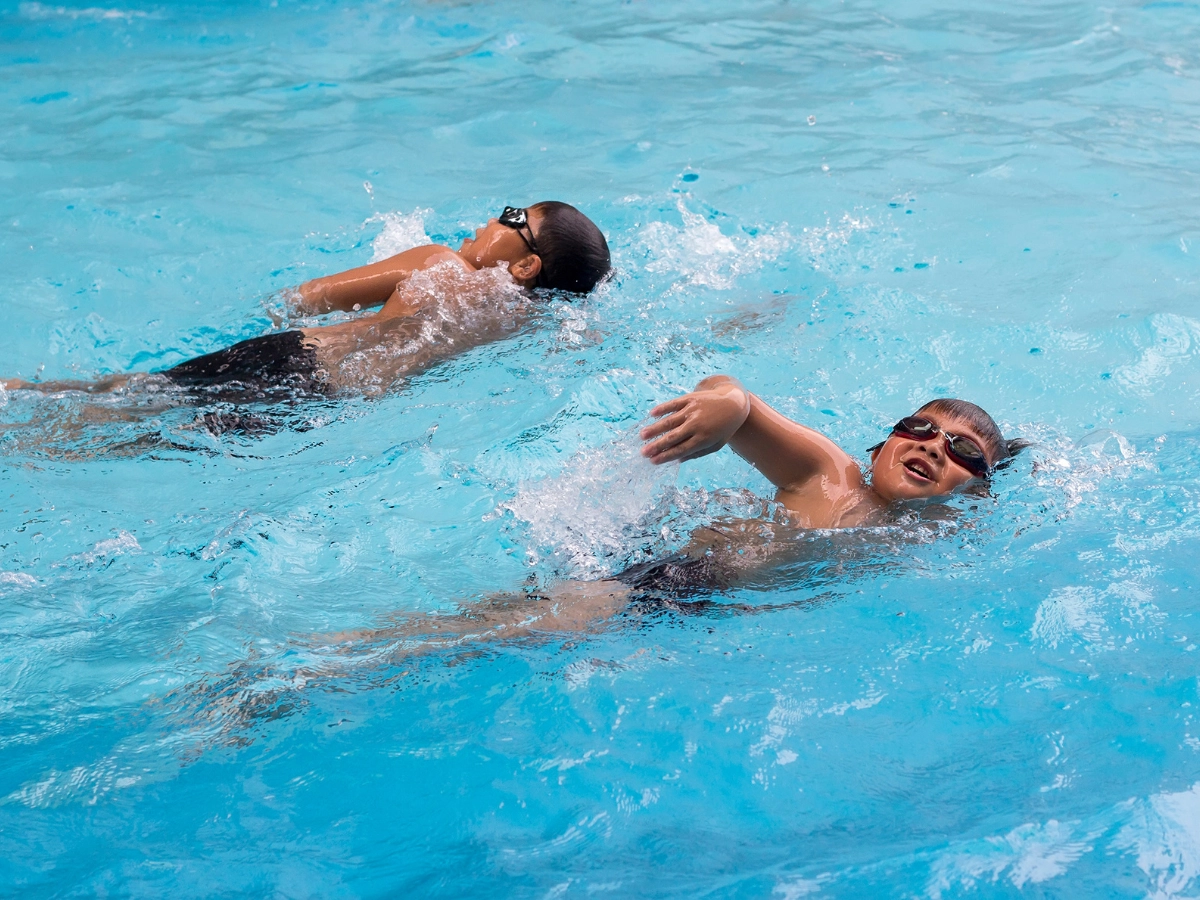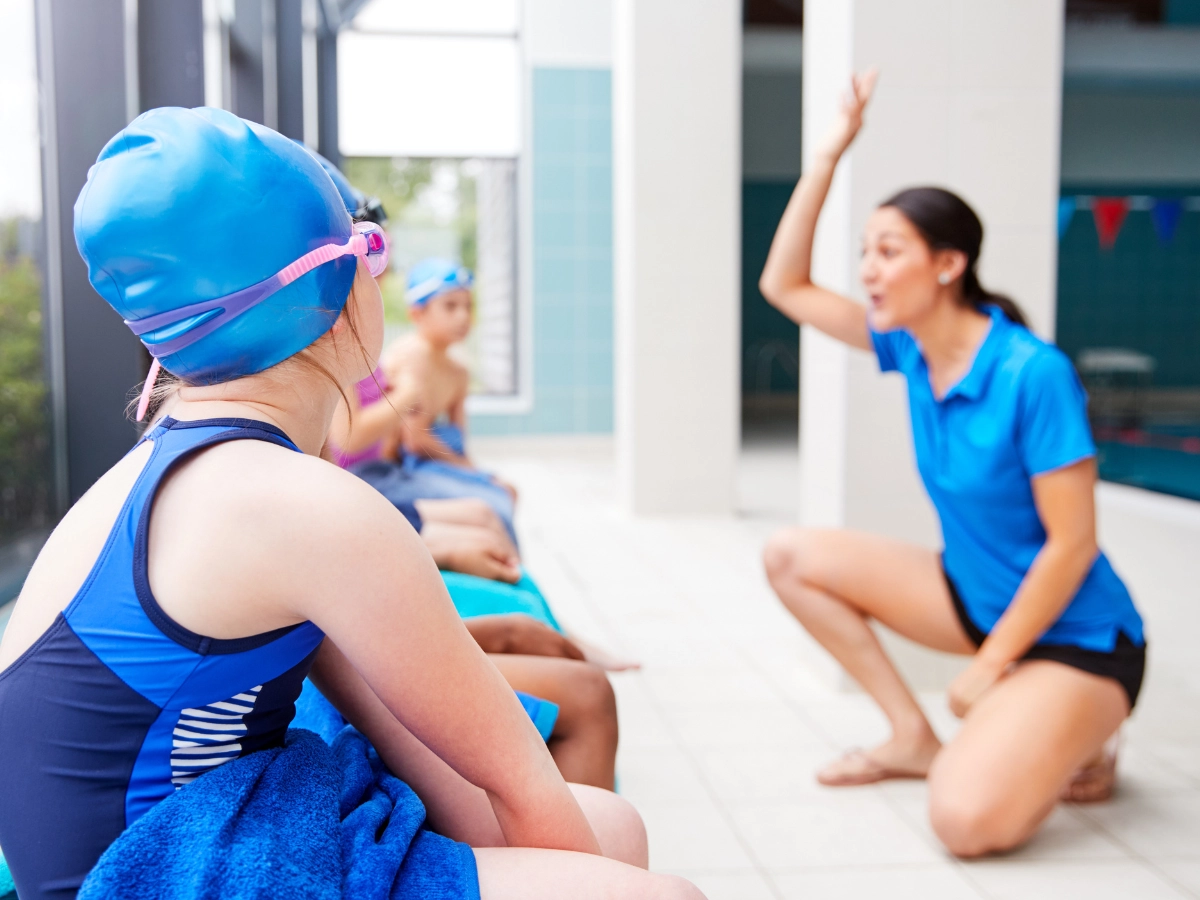Sports can be a vehicle for positive development, prompting learning, achievement and development. Engagement in sports can foster personal growth – there are even studies that suggest sports can promote well-being and academic achievement.
Coaches are in the position to be a positive force
Coaches are there to produce positive outcomes – whether that be a win or team development and athlete personal development. They are in a great position to promote active lifestyles, inclusion and engagement in physical activity. This is something that takes time – guidance and an understanding of the power of sports. Good coaches are equipped to deliver on these expectations and unlock athletes’ potential. It’s something owners of youth activity centers should consider providing training and resources to their coaches for.
Want examples? Look at Gareth Southgate bringing out the most in his England team at the 2018 FIFA World Cup. And, Southgate was credited with being a great support for Danny Rose, after he revealed his battle with depression. Look back into what an influence gymnastics coaching great Béla Károlyi was on his athletes such as Nadia Comaneci, Mary Lou Retton and Kim Zmeskal. Or one of the world’s most respected swim coaches, David Marsh, who has coached 49 Olympians from 19 different countries.
The flip side is that a negative sports experience can also hinder development. It is linked with negative experiences and outcomes, such as stress, burnout, dropout and low self-esteem. That is why coaches have such an important role in the lives of their athletes. It’s important for athletes to understand their failures and to learn from them to reach their potentials. This makes the role of all coaches -including swim coaches – even more important.
Swim Coaches use character traits in encouraging positive outcomes for athletes
The four Cs are a breakdown of positive outcomes encouraged by swim coaches.
-
Competence motivates continuing to try
Competence indicates a positive view of oneself – in disciplined sports like swimming, academics, work environments and social situations. Feeling competent is one of the fundamental psychological needs for humans to have because without it, they are likely to lack motivation to work hard, progress toward excellence. Continuous progress is key to learning to swim and swim well.
-
Confidence requires a positive sense of self-worth
Confidence can influence self-perception and motivation as well as the capacity to learn and perform. The development of confidence starts during childhood and continues into teen years. Swim coaches help their swimmers develop confidence in themselves and in swimming and help to give them the tools to pursue their goals.
-
Connection requires a sense of belonging and inspires the development of positive bonds
In sports like swimming, these bonds are often among team members and provide a warm and friendly environment where physical and social skills can thrive. Connections with coaches produce positive outcomes that encourage fun and trying harder as swimmers are learning new swim skills.
-
Character and caring are learned from role models and coaches
Character and caring, which are evident in those with good moral character, integrity and a sense of compassion, stem from participation in sports, including swimming. Because of this swim coaches are important to the development of good moral character that will last a swimmer’s lifetime.
Successful swim coaches are mindful of how they model these traits in contributing to the development of their swimmers. Using the four Cs in coaching strengthens positive swimming experiences for everyone.
Multiple roles help coaches promote positive experiences
That’s why Swim School Coach just doesn’t say it all. When you work with kids you gotta be a little bit of everything to get the job done. This means a swim cap isn’t the only hat a swim coach is familiar with.
In addition to teaching and coaching you put on several other hats that are worth highlighting because they do, indeed, contribute to your team’s success, your individual athletes’ success and, ultimately, your success as an instructor/coach. These hats are how you, the swim coach, influence athletes in many ways.
How do coaches influence athletes?
Here are ten hats that may be found on your hat rack. I’m sure you can think of more.
1. You need to be a Comedian to deliver your message
Every instructor/coach has to have a show! It doesn’t work to just stand in front of your swim class and talk. Not only would it be helpful to demonstrate but you would totally be the king or queen of student engagement if you used props – especially funny ones!
2. Your Ringmaster skills will be tested
You may or may not want to admit it but what you’re running is a bit of a circus. You probably even have a concession stand! You must capture and maintain the attention of more than 1 child for at least 30 minutes. Seems like a miracle, right? However, you, the ringmaster, knows how to accomplish a dozen things in concert and minimize distractions so you’re able to impart some sort of knowledge to your miniature Michael Phelps and Missy Franklins before gathering them poolside.
3. You’re the Provider that gives them the tools they need
Whether it’s a coloring sheet to take home, a certificate for passing a milestone or a prize for guessing today’s fun quiz question, you are the provider of all things during swim lessons. You’re even the provider of the next turn in line to an eager student and kudos for a job well-done for a student who may have needed improvement.
4. You must be the Mind Reader who discerns behavior
You may not be The Amazing Kreskin, but you have to be able to read these little boogers. You must see it in their body language when they are frustrated or embarrassed, hear it in their voice when they are frightened or just get the feeling that a meltdown is imminent. As much as possible you must be able to mimic Kreskin himself and say “Even now I know what you’re thinking.” Being in sync and empathic makes an invaluable connection with students that you don’t have to be a mind reader to recognize.
5. You’re a Counselor from whom they seek advice
You never know what to expect from the minds (and mouths) of children/athletes/students. They may ask you very interesting questions that you feel are (or are not) in your wheelhouse. Part of your gift as an instructor/coach is being able to navigate the counselor role. You’re there to help when it’s appropriate and defer to parents when it’s not. Regardless of which you do, your actions must earn their trust because teaching them practically anything requires it.
6. You’re the Detective who uncovers their secrets
Any environment that involves children will have some components of mystery and even the unknown. You must be able to solve the mysteries and discover the unknown, regardless of how serious or silly it is. From who took Coach Taylor’s stopwatch? to Who cut the cheese? It’s a must that your detective skills are sharp.
7. You’re the Nurse who kisses boo-boos
Whether it’s cement scraps or vomit, you’re the hero if you not only have bandages and the custodian closeby but also have the patience, kind heart and words to soothe the frazzled nerves.
8. You’re required to be the Test Administrator
If you’re teaching or coaching, you’re probably also testing. I’m not talking about a test where you check the box for answers A, B, C or D, but ones where you are making sure that students have mastered necessary skills to move to the next level. This is critical in swim since swimming is a progression of skills learned one on top of the other.
9. Your role is that of Role Model
A coach/instructor’s influence is potent. In fact, it’s downright infectious. Who doesn’t remember the swim coach who encouraged you along the way to be your best self? Even into adulthood, we look up to those who have inspired us – regardless if it was last year or 20 years ago. That’s what makes coaching and teaching so rewarding, respected and daunting – all at the same time!
10. You are the Content Expert, source of all knowledge
Realize that your knowledge zone for your students is swimming. It’s all things swimming – but it IS swimming. If you stray outside of your knowledge zone, you will also get out of your comfort zone. Your students (and everyone else who is in earshot) will know it and that will make everyone uncomfortable.
Fashionistas may believe you can’t have too many hats on your hat rack, but I would imagine that you disagree. The magic comes for your students when – regardless of how many you wear – they fit you, you thrive in sharing what wearing your hats means to you – and you look good wearing them!














